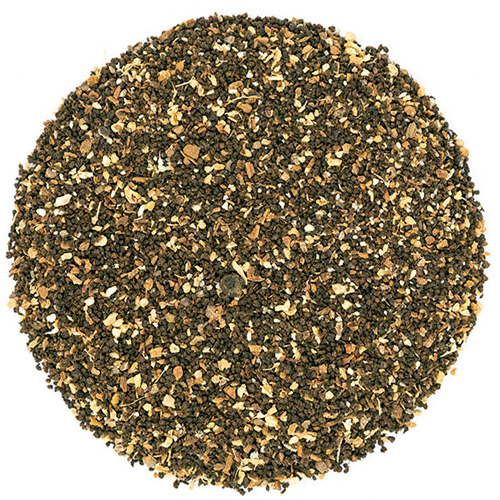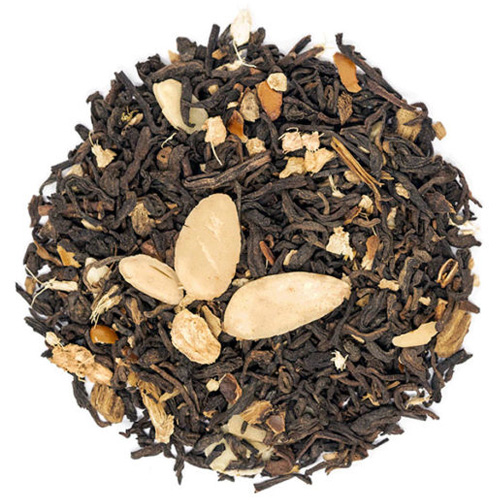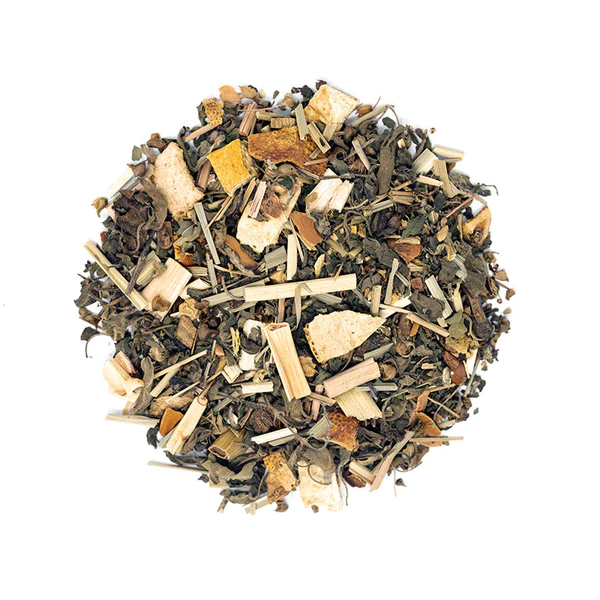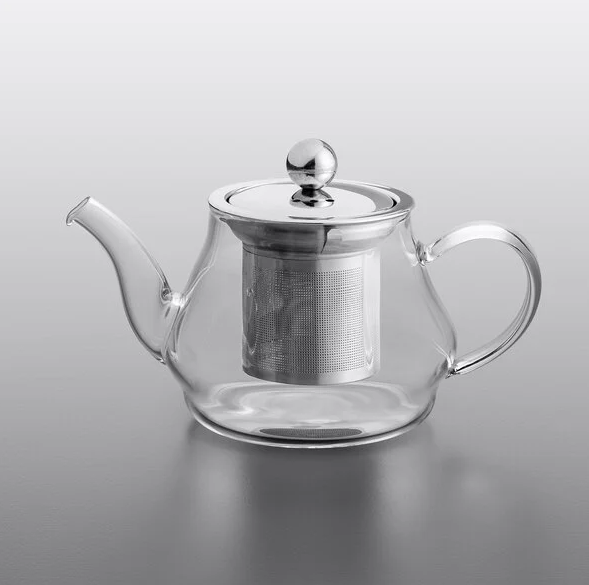10 Chai Tea Health Benefits
This post may contain affiliate links. Simple Loose Leaf is a participant in the Amazon Associates Program, an affiliate advertising program designed to provide a means for sites to earn advertising fees by linking to Amazon.com. Masala Chai is more than just a tea. It’s a tradition. It’s a soothing and warming drink made to bring joy. Masala Chai is a drink rooted in Ayurvedic tradition. And it all started with herbs and spices, before the real tea became a part of the blend.
What is chai tea?
Chai literally means tea. But in India, it means tea with milk. Although the word chai in western countries usually implies black tea with spices, milk and sugar, the real chai is made pure–with no spices. The spiced version is called Masala Chai, which translates into Spiced Tea. Spiced or not, there are no doubts that Chai is delicious, soothing and one of the best milk teas in the world.What are the ingredients of Chai tea?
The basic Chai tea recipe includes strong black tea, usually broken or CTC Assam tea, water, milk and sugar. Spiced Chai can include many spices: cardamom, black pepper, ginger, cinnamon, cloves, star anise, fennel, nutmeg, turmeric, saffron and others. It can contain chocolate, even nuts, fruits and flowers. However, the fruity and floral versions are the modern creations, while the traditional ones usually include spices only. Chai is usually made with loose leaf tea, but tea bags can be used too. However, to make the most delicious cup of chai tea, we recommend using high quality loose leaf tea and boil the leaves together with spices.
What are the health benefits of chai tea?
Chai can offer many benefits. It contains black tea, so the benefits of chai include the benefits of black tea. The most commonly used teas are Indian, and sometimes Ceylon tea. African black tea may be a good option too. Besides the benefits of black tea, chai includes many health benefits of the spices too. The most common ones such as cinnamon cloves and ginger have been traditionally used in both traditional Chinese medicine and Indian Ayurvedic medicine. Both tea and spices in chai tea are boiled for longer that you would brew your regular cup, so they have more time to release both the flavor and beneficial compounds. Keep in mind though, that the type of milk, sugar or other ingredients may influence the final benefits.1. Energy boosting
Chai tea contains high amounts of caffeine. It’s made with black tea with broken leaves or CTC type. CTC teas are a special type of tea crushed and shaped into small pellets. Expect 1-2 times more caffeine from broken black tea particles or dust than you would from an unbroken Assam tea.2. Antioxidant properties
Both black tea and spices may help protect the cells from oxidative stress. The most common tea base for Masala Chai is Assam tea. Studies suggest that Assam black tea has higher polyphenolic content than other Indian black teas[1]. Antioxidants may help protect the cells and boost the immune system.
3. Chemoprotective effect
Studies showed that both black tea and many of the spices included in chai tea may have chemo protective properties.[2] If further research confirm the claims that black tea and spices[3] may contribute to reducing the risk of cancer, chai tea could be a winner with combining both of them into a delicious drink.4. Aiding Digestion
Both ginger and black pepper may be very beneficial for digestion. Studies showed that black pepper and ginger may help improve the gut health and digestion[4] [5]5. Regulating cholesterol
Black tea[6], cinnamon, black pepper, ginger,[7] cloves[8] and other spices may help reduce the levels of bad cholesterol.6. Anti inflammatory properties
Inflammation is linked to many chronic diseases, from diabetes to Alzheimer’s disease. Research showed that both black tea[9] and spices such as ginger, turmeric, cloves, cardamom cinnamon show anti-inflammatory properties [10],[11] and may help in fighting many diseases.7. Relieving stomach pain and nausea
Ginger in chai is a must. No cup of chai will ever be perfect without ginger. Ginger root is commonly used for treating different types of nausea[12], and vomiting[13]. Herbal chai blends may be a better choice for upset stomach than black tea blends.
8. Heart health
Drinking black tea may reduce the risk of heart diseases and stroke. Studies showed that ginger, black pepper and cinnamon may help to support a healthy heart too[14].9. Weight loss properties
The combination of black tea and chai may help in achieving weight loss goals, but be careful – the real chai contains sugar too. Meaning, you may get a very opposite effect. Furthermore, studies showed that cinnamon may help with metabolic syndrome and help lose weight, reduce bad cholesterol, blood sugar levels and fat, and blood pressure[15]. On the other hand, black tea may help with reducing the calorie intake and enhancing fat burn[16].
10. Protecting the brain
Studies suggest that drinking three cups of black tea per day may help protect against diseases linked to brain such as Alzheimer’s[17] and Parkinson’s disease[18].Are there any side effects?
Although tea drinking generally has very little to no side effects and may be very beneficial to health, you should still be cautious. First, brewed chai tea contains a lot of sugar. If you are making or drinking the traditional one, make sure to reduce the sugar or use an alternative sweetener. Even better, avoid sweeteners completely, and treat yourself to a sweetened tea only for special occasions. Next, spices may cause heartburn in some people. Chai is made with real milk, so if you are lactose intolerant, avoid cow’s milk and use alternatives. Milk, too, contains calories and sugars, so pay attention if you are trying to lose weight. And lastly, chai is made with black tea that contains caffeine. Strong black tea, especially broken Assam or Assam dust, is high in caffeine. Searching for chai latte tea recipes? Check out recipes for a delicious home-made chai latte.Disclaimer: This article is for informational purposes only. It’s not intended to replace medical advice, diagnosis or treatment. Every person is different and may react to different herbs and teas differently. Never use teas or herbs to treat serious medical conditions on your own. Always seek professional medical advice before choosing home remedies.
References:
[1] https://www.ncbi.nlm.nih.gov/pmc/articles/PMC5380613/ [2] https://www.naturalmedicinejournal.com/journal/2010-06/anti-inflammatory-and-chemopreventative-effects-chai-tea [3] https://www.ncbi.nlm.nih.gov/pmc/articles/PMC3819475/ [4] https://www.ncbi.nlm.nih.gov/pubmed/23768180 [5] https://www.ncbi.nlm.nih.gov/pmc/articles/PMC6590564/ [6] https://www.ncbi.nlm.nih.gov/pubmed/14519829 [7] https://www.ncbi.nlm.nih.gov/pmc/articles/PMC3083808/ [8] https://www.fasebj.org/doi/abs/10.1096/fasebj.20.5.A990-b [9] https://www.sciencedirect.com/science/article/abs/pii/S1043661804001902 [10] https://www.researchgate.net/publication/321573429_Processing_and_Medicinal_Uses_of_Cardamom_and_Ginger-A_Review [11] https://www.ncbi.nlm.nih.gov/pmc/articles/PMC5785894/ [12] https://www.ncbi.nlm.nih.gov/pubmed/10793599 [13] https://www.ncbi.nlm.nih.gov/pubmed/25872115 [14] https://www.ncbi.nlm.nih.gov/pmc/articles/PMC3083808/ [15] https://www.ncbi.nlm.nih.gov/pmc/articles/PMC5469078/ [16] https://www.ncbi.nlm.nih.gov/pmc/articles/PMC6273558/ [17] https://www.health.harvard.edu/alzheimers-and-dementia/regular-tea-drinking-linked-with-dementia-prevention [18] https://www.ncbi.nlm.nih.gov/pmc/articles/PMC4055352/
More from:
SLL




Leave a comment